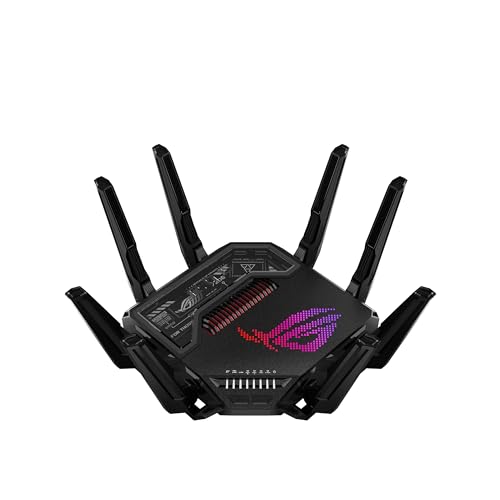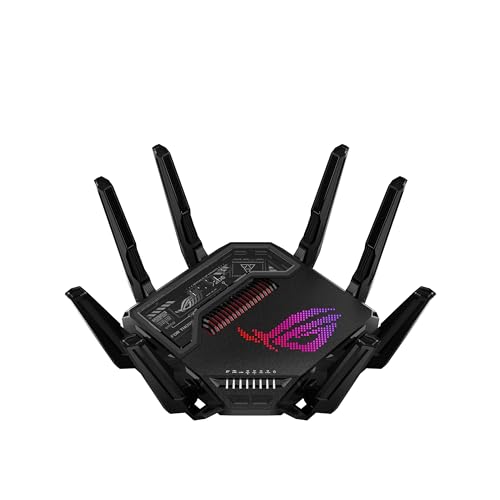Fast and reliable WiFi has become a non-negotiable necessity in today’s world. Whether you’re a student, a remote worker, or simply someone who enjoys streaming movies and music, having a strong WiFi connection is crucial for staying connected and getting things done efficiently. But why is it so important?
Firstly, fast WiFi enables us to work more effectively and be productive. Slow internet speeds can lead to frustration and wasted time as we wait for pages to load or files to upload. With fast and reliable WiFi, tasks can be completed faster, allowing us to spend more time on other important activities.
Moreover, in an increasingly digital world where smart devices are becoming the norm, having fast WiFi allows for seamless connectivity between all our gadgets. From smartphones and tablets to smart TVs and home automation systems, everything relies on a stable internet connection. Without it, the potential of these devices remains untapped.
Additionally, with the rise of video conferencing platforms like Zoom and Microsoft Teams becoming everyday tools for communication in both professional settings and personal life, having fast WiFi ensures smooth video calls without any lag or interruptions.
fast and reliable WiFi is no longer just a luxury but an essential component of our daily lives. It enhances productivity at work or school while providing endless entertainment opportunities at home. Investing in a high-quality router that can improve your WiFi speed is definitely worth considering when it comes to optimizing your internet experience.
Understanding WiFi Speed
What is WiFi Speed?
Before we can explore how a router can enhance WiFi speed, it’s crucial to understand what WiFi speed means. WiFi speed, often measured in megabits per second (Mbps), represents the rate at which data is transmitted over a wireless network. It determines how quickly you can download, upload, or stream content on your devices.
Factors Influencing WiFi Speed
Several factors can impact your WiFi speed, and they extend beyond the capabilities of your router. These factors include signal strength, interference, network congestion, and hardware limitations.
Signal strength refers to the quality of the wireless signal between your router and connected devices. Weak signals lead to slower speeds and a less stable connection. Interference from neighboring networks or electronic devices can disrupt your WiFi signal, causing slowdowns or dropouts. Network congestion occurs when multiple devices are simultaneously using the same network, leading to reduced speeds for all users. Hardware limitations can also hinder WiFi performance; older devices may not support the latest WiFi standards and can drag down the network’s overall speed.
The Importance of Faster WiFi Speed
Why should you care about faster WiFi speed? Faster speed means a smoother online experience. It reduces buffering while streaming, decreases lag in online gaming, and ensures that video calls are crystal clear. Faster WiFi also allows multiple devices to connect simultaneously without sacrificing performance. With the increasing number of smart devices in our homes, from smartphones to smart thermostats, faster WiFi speed becomes essential for seamless connectivity.
The Role of a Router
What Does a Router Do?
A router is the central hub of your home network. It connects your devices to the internet and routes data between them. Think of it as the traffic cop of your network, ensuring that data packets reach their intended destinations efficiently.
Different Types of Routers
Routers come in various types, and their capabilities can vary significantly. Standard routers are the most common and are typically provided by internet service providers. They serve as the basic connection point between your devices and the internet. On the other hand, mesh routers are designed for larger homes or areas with weak coverage. They consist of multiple nodes that work together to create a seamless network with no dead zones.
Router Capabilities and Limitations
While routers play a crucial role in your network’s performance, they do have limitations. The speed and coverage of your WiFi network are influenced by the router’s specifications, such as its processor, memory, and the WiFi standards it supports. Older routers may not be capable of delivering the fastest speeds available today.
How a Router Can Improve WiFi Speed
Upgrading to a Newer Router
One of the most effective ways to boost your WiFi speed is by upgrading to a newer router. Newer models are equipped with the latest technology and standards, offering faster speeds and better performance. When shopping for a new router, consider options that support the latest WiFi standards like Wi-Fi 6 (802.11ax), as they provide higher data rates and improved network efficiency.
Optimizing Router Settings
Your router’s settings can have a significant impact on WiFi speed. By adjusting these settings, you can maximize your network’s performance. Start by selecting the optimal WiFi channel to reduce interference from neighboring networks. Regularly updating your router’s firmware ensures that it operates at its best. Quality of Service (QoS) settings allow you to prioritize specific devices or applications for faster speeds when needed.
Using Additional Networking Hardware
In some cases, you can improve WiFi speed by adding extra networking hardware to your setup. WiFi extenders, for example, can expand the coverage area of your WiFi network, reducing dead zones and improving signal strength. Access points can be strategically placed in areas with high device density to provide additional WiFi capacity.
Advanced Router Features
Many modern routers come with advanced features like beamforming, MU-MIMO (Multi-User, Multiple Input, Multiple Output), and dual-band or tri-band capabilities. Beamforming focuses the WiFi signal directly at connected devices, improving signal strength and reliability. MU-MIMO allows multiple devices to communicate with the router simultaneously, reducing congestion. Dual-band routers operate on both the 2.4GHz and 5GHz frequency bands, while tri-band routers add an additional 5GHz band, providing more options for devices to connect at higher speeds.
Real-world Scenarios and Case Studies
Examples of Router-Enhanced WiFi Speed
To illustrate the real-world impact of router upgrades, let’s consider a few scenarios. Imagine a household with multiple family members working and streaming simultaneously. Upgrading to a Wi-Fi 6 router could lead to smoother video calls, faster downloads, and minimal lag during online gaming. In another case, a homeowner struggling with WiFi dead zones could benefit from a mesh router system that extends coverage throughout their entire residence.
Testimonials and User Experiences
Numerous users have shared their experiences online regarding router upgrades and their impact on WiFi speed. These firsthand accounts often highlight significant improvements in speed, reliability, and overall network performance. Many users have reported reduced buffering during high-definition video streaming and seamless online gaming experiences after investing in a new router.
Factors Beyond the Router
Acknowledging Other Influential Factors
While a router upgrade can be a game-changer for your WiFi speed, it’s essential to acknowledge that other factors also play a role. The capabilities of your connected devices, the quality of your internet service, and the layout of your home can all affect WiFi performance. To achieve the best results, it’s often necessary to consider and address these factors in conjunction with router improvements.
Importance of Holistic Network Management
A holistic approach to network management involves optimizing not only your router but also your entire network environment. This may include upgrading devices to ones that support faster WiFi standards, ensuring your internet plan meets your speed requirements, and strategically placing networking hardware throughout your home to minimize dead zones.
Frequently Asked Questions: Can a Router Improve WiFi Speed
Q1: Can a router really make my WiFi faster?
A: Yes, a router can significantly improve your WiFi speed. Newer routers, especially those supporting the latest WiFi standards like Wi-Fi 6 (802.11ax), offer faster data rates and improved network efficiency. Upgrading to a new router with these capabilities can lead to a noticeable boost in WiFi speed.
Q2: What factors influence WiFi speed besides the router?
A: Several factors can affect WiFi speed, including:
- Signal Strength: Weak signals result in slower speeds and a less stable connection.
- Interference: Interference from neighboring networks or electronic devices can disrupt your WiFi signal.
- Network Congestion: When multiple devices use the same network simultaneously, it can lead to reduced speeds.
- Hardware Limitations: Older devices may not support the latest WiFi standards, affecting overall network speed.
Q3: Are there settings I can adjust on my router to improve WiFi speed?
A: Yes, optimizing router settings can enhance WiFi speed. You can:
- Choose the Right Channel: Select an optimal WiFi channel to minimize interference.
- Update Firmware: Regularly update your router’s firmware to ensure it operates at its best.
- Quality of Service (QoS): Prioritize specific devices or applications for faster speeds when needed.
Q4: What types of routers are available, and which one is best for me?
A: There are two main types of routers: standard routers and mesh routers. Standard routers are suitable for smaller homes, while mesh routers are designed for larger spaces or areas with weak coverage. The best choice depends on your specific needs and the size of your home.
Q5: Do advanced router features like beamforming and MU-MIMO really improve WiFi speed?
A: Yes, advanced features like beamforming and MU-MIMO can enhance WiFi speed. Beamforming focuses the WiFi signal directly at connected devices, improving signal strength and reliability. MU-MIMO allows multiple devices to communicate with the router simultaneously, reducing congestion and improving overall performance.
Q6: Can I use additional networking hardware to boost my WiFi speed?
A: Yes, you can use additional networking hardware to improve WiFi speed. WiFi extenders can expand your network’s coverage and reduce dead zones, while access points can be strategically placed to provide additional WiFi capacity in areas with high device density.
Q7: Are there real-world examples of router upgrades improving WiFi speed?
A: Absolutely! Many users have reported significant improvements in WiFi speed, reliability, and overall network performance after upgrading their routers. These improvements often lead to reduced buffering during streaming, minimal lag in online gaming, and smoother video calls.
Q8: What should I consider beyond upgrading my router to improve WiFi speed?
A: While upgrading your router is essential, other factors also play a role in WiFi speed, such as the capabilities of your connected devices, the quality of your internet service, and the layout of your home. To achieve the best results, consider a holistic approach to network management that addresses all these factors.
Q9: How can I ensure I’m getting the most out of my WiFi network?
A: To maximize your WiFi network’s performance, consider the following:
- Upgrade to a newer router with the latest WiFi standards.
- Optimize router settings, including WiFi channels and QoS.
- Use additional networking hardware like extenders or access points where needed.
- Ensure that your connected devices support faster WiFi standards.
- Subscribe to an internet plan that meets your speed requirements.
Q10: Are there any recommended router models for different needs?
A: Yes, there are various router models to choose from based on your needs. Some recommended options include:
Final Thoughts
Investing in a quality router can be a game-changer when it comes to improving your WiFi speed. While it may seem tempting to opt for a cheaper option, the benefits of investing in a reliable and high-performance router are undeniable. Not only will it provide you with faster internet speeds, but it can also enhance the overall stability and reliability of your connection.
One of the key advantages of having a quality router is its ability to handle multiple devices simultaneously without compromising speed or performance. With the increasing number of smart devices connected to our networks, from smartphones to smart TVs and home automation systems, having a powerful router becomes essential. A top-notch router can efficiently manage heavy data traffic without causing lag or dropouts, ensuring that everyone in your household enjoys seamless connectivity.
Furthermore, investing in a quality router ensures future-proofing. The technology behind routers is constantly evolving as new standards like Wi-Fi 6 are introduced. By choosing a high-end model, you’re more likely to have access to advanced features and improved performance that will keep up with future demands and innovations in wireless networking technology.
In conclusion, if you want faster speeds, better connectivity for multiple devices, and future-proofing capabilities, investing in a quality router pays off greatly. Don’t settle for inferior options that might hinder your online experience; instead, choose one that offers superior performance and reliability so that you can make the most out of your internet connection now and in the future.







Leave a Reply
You must be logged in to post a comment.